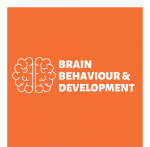In this project, we examine the use of three different modalities of data collection to understand everyday behaviours.
- Ecological Momentary Assessment (EMA): EMA is repeated self-report questions collected via smartphone. EMA has been used to collect ‘real-time’ self-assessments of behaviour or feelings in the context of daily life, allowing us to capture change over time without relying on memory. EMA approaches have been used in children as young as age 7 years, in children with anxiety and pain, and can measure symptoms, interactions, moods, sleep, and many other aspects of daily life. The EMA offers limitless opportunities to measure different types of time-based interactions between symptoms and experiences.
- Physical Activity Monitoring: Activity monitors have been widely used as tools to assess physical activity (PA) as they provide an objective assessment of activity, rest, sleep and even screen time.
- Saliva Collection: Collecting saliva allows us to measure biomarkers related to stress (cortisol and salivary alpha-amylase) in a non-invasive way. These are both measures of stress responses but reflect different physiological systems.
We are working with patients and families from diverse backgrounds and from across the developmental spectrum to understand how to best use these methods in community-based research, and to answer the questions that matter to families.
